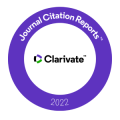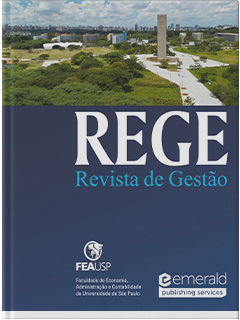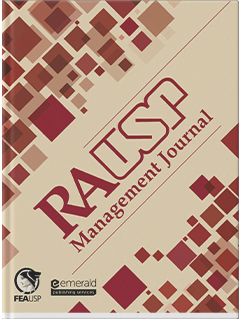Format |
Article files should be provided in Microsoft Word format. LaTex files can be used if an accompanying PDF document is provided. PDF as a sole file type is not accepted, a PDF must be accompanied by the source file. Acceptable figure file types are listed further below.
|
|
Article length
|
Articles should be a maximum of 7,000 words in length. This includes all text including references and appendices. Please allow 280 words for each figure or table.
(For instance, if an article has 6,000 words and two tables, then the total sum of words will be: 6,000 + 280 + 280 = 6,560 words)
|
|
Article title
|
A title of not more than eight words should be provided.
|
|
Author details
|
All contributing authors’ names should be added to the ScholarOne submission, and their names arranged in the correct order for publication. IMPORTANT- all authors (both the corresponding and co-authors) are required to have a valid ORCiD in order to publish in this journal. Submitting authors should ensure that all relevant ORCiDs are captured as part of the submission process. In order to obtain your ORCiD, please follow this link: https://orcid.org/register
- Correct e-mail addresses should be supplied for each author in their separate author accounts
- The full name of each author must be present in their author account in the exact format they should appear for publication, including or excluding any middle names or initials as required
- The affiliation of each contributing author should be correct in their individual author account. The affiliation listed should be where they were based at the time that the research for the paper was conducted
|
|
Biographies and acknowledgements
|
Authors who wish to include these items should save them together in an MS Word file to be uploaded with the submission. If they are to be included, a brief professional biography of not more than 100 words should be supplied for each named author.
|
|
Structured abstract
|
Authors must supply a structured abstract in their submission, both via the online submission system and within the Word document as per the below sub-headings (see our "How to... write an abstract" guide for practical help and guidance):
- Purpose (mandatory)
- Design/methodology/approach (mandatory)
- Findings (mandatory)
- Research limitations/implications (if applicable)
- Practical implications (if applicable)
- Social implications (if applicable)
- Originality/value (mandatory)
Maximum is 250 words in total (including keywords and article classification, see below).
Authors should avoid the use of personal pronouns within the structured abstract and body of the paper (e.g. "this paper investigates..." is correct, "I investigate..." is incorrect).
|
|
Keywords
|
Authors should provide appropriate and short keywords in the ScholarOne submission that encapsulate the principal topics of the paper (see the How to... ensure your article is highly downloaded guide for practical help and guidance on choosing search-engine friendly keywords). The maximum number of keywords is 12.
Whilst Emerald will endeavour to use submitted keywords in the published version, all keywords are subject to approval by Emerald’s in house editorial team and may be replaced by a matching term to ensure consistency.
|
|
Article classification
|
Authors must categorize their paper as part of the ScholarOne submission process. The category which most closely describes their paper should be selected from the list below.
Research paper. This category covers papers which report on any type of research undertaken by the author(s). The research may involve the construction or testing of a model or framework, action research, testing of data, market research or surveys, empirical, scientific or clinical research.
Viewpoint. Any paper, where content is dependent on the author's opinion and interpretation, should be included in this category; this also includes journalistic pieces.
Technical paper. Describes and evaluates technical products, processes or services.
Conceptual paper. These papers will not be based on research but will develop hypotheses. The papers are likely to be discursive and will cover philosophical discussions and comparative studies of others' work and thinking.
Case study. Case studies describe actual interventions or experiences within organizations.
Literature review. It is expected that all types of paper cite any relevant literature so this category should only be used if the main purpose of the paper is to annotate and/or critique the literature in a particular subject area. It may be a selective bibliography providing advice on information sources or it may be comprehensive in that the paper's aim is to cover the main contributors to the development of a topic and explore their different views.
General review. This category covers those papers which provide an overview or historical examination of some concept, technique or phenomenon. The papers are likely to be more descriptive or instructional ("how to" papers) than discursive.
|
|
Headings
|
Headings must be concise, with a clear indication of the distinction between the hierarchy of headings.
The preferred format is for first level headings to be presented in bold format and subsequent sub-headings to be presented in medium italics.
|
|
Notes/endnotes
|
Notes or endnotes should be used only if absolutely necessary and must be identified in the text by consecutive numbers, enclosed in square brackets and listed at the end of the article.
|
|
Figures
|
All Figures (charts, diagrams, line drawings, web pages/screenshots, and photographic images) should be submitted in electronic form.
All figures should be of high quality, legible and numbered consecutively with Arabic numerals. Graphics may be supplied in colour to facilitate their appearance on the online database.
- Figures created in MS Word, MS PowerPoint, MS Excel, Illustrator should be supplied in their native formats. Electronic figures created in other applications should be copied from the origination software and pasted into a blank MS Word document or saved and imported into an MS Word document or alternatively create a PDF file from the origination software.
- Figures which cannot be supplied as above are acceptable in the standard image formats which are: .pdf, .ai, and .eps. If you are unable to supply graphics in these formats then please ensure they are .tif, .jpeg, or .bmp at a resolution of at least 300dpi and at least 10cm wide.
- To prepare web pages/screenshots simultaneously press the "Alt" and "Print screen" keys on the keyboard, open a blank Microsoft Word document and simultaneously press "Ctrl" and "V" to paste the image. (Capture all the contents/windows on the computer screen to paste into MS Word, by simultaneously pressing "Ctrl" and "Print screen".)
- Photographic images should be submitted electronically and of high quality. They should be saved as .tif or .jpeg files at a resolution of at least 300dpi and at least 10cm wide. Digital camera settings should be set at the highest resolution/quality possible.
|
|
Tables
|
Tables should be typed and included in a separate file to the main body of the article. The position of each table should be clearly labelled in the body text of article with corresponding labels being clearly shown in the separate file.
Ensure that any superscripts or asterisks are shown next to the relevant items and have corresponding explanations displayed as footnotes to the table, figure or plate.
|
|
Supplementary files
|
Where tables, figures, appendices, and other additional content are supplementary to the article but not critical to the reader’s understanding of it, you can choose to host these supplementary files alongside your article on Insight, Emerald’s content-hosting platform (this is Emerald's recommended option as we are able to ensure the data remain accessible), or on an alternative trusted online repository.
Emerald recommends authors that they use the following two trusted lists of repositories: https://commons.datacite.org/repositories and https://www.re3data.org to identify the most suitable repository. Any and all supplementary material must be present/provided with the initial submission.
If you choose to host your supplementary files on Insight, you must submit these as separate files alongside your article. Files should be clearly labelled in such a way that makes it clear they are supplementary; Emerald recommends that the file name is descriptive and that it follows the format 'Supplementary_material_appendix_1' or 'Supplementary tables'. All supplementary material must be mentioned at the appropriate moment in the main text of the article; there is no need to include the content of the file only the file name. A link to the supplementary material will be added to the article during production, and the material will be made available alongside the main text of the article at the point of EarlyCite publication.
Please note that Emerald will not make any changes to the material; it will not be copy-edited or typeset, and authors will not receive proofs of this content. Emerald therefore strongly recommends that you style all supplementary material ahead of acceptance of the article.
Emerald Insight can host the following file types and extensions:
- Adobe Acrobat (.pdf)
- MS Word document (.doc, .docx)
- MS Excel (.xls, xlsx)
- MS PowerPoint (.pptx)
- Image (.png, .jpeg, .gif)
- Plain ASCII text (.txt)
- PostScript (.ps)
- Rich Text Format (.rtf)
If you choose to use an alternative trusted online repository, you should ensure that the supplementary material is hosted on the repository ahead of submission, and then include a link only to the repository within the article. It is the responsibility of the submitting author to ensure that the material is free to access and that it remains permanently available. Where an alternative trusted online repository is used, the files hosted should always be presented as read-only; please be aware that such usage risks compromising your anonymity during the review process if the repository contains any information that may enable the reviewer to identify you; as such, we recommend that all links to alternative repositories are reviewed carefully prior to submission.
Please note that extensive supplementary material may be subject to peer review; this is at the discretion of the journal Editor and dependent on the content of the material (for example, whether including it would support the reviewer making a decision on the article during the peer review process).
|
|
References
|
References to other publications must be in APA style and carefully checked for completeness, accuracy and consistency. This is very important in an electronic environment because it enables your readers to exploit the Reference Linking facility on the database and link back to the works you have cited through CrossRef.
Invert all authors’ names; give surnames and initials for up to and including seven authors. When authors number eight or more, include the first six authors’ names, then insert three ellipsis points, and add the last author’s name. For example:
Gilbert, D. G., McClernon, J. F., Rabinovich, N. E., Sugai, C., Plath, L. C., Asgaard, G., … Botros, N. (2004). Effects of quitting smoking on EEG activation and attention last for more than 31 days and are more severe with stress, dependence, DRD2 A 1 allele, and depressive traits. Nicotine and Tobacco Research, 6, 249–267. doi:1 0.1 080/1462220041 0001676305.
For references with the same surname and initials but different first name provide the first name as follows:
-
- Janet, P. [Paul]. (1876). La notion de la personnalité [The notion of personality]. Revue Scientifique, 10, 574–575.
- Janet, P. [Pierre]. (1906). The pathogenesis of some impulsions. Journal of Abnormal Psychology, 1, 1–17.
Text citation to be given as follows: (Paul Janet, 1876) (Pierre Janet, 1906)
For references of two or more primary authors with the same surname, include the first author's initials in all text citations, even if the year of publication differs.
-
- Light, I. (2006). Deflecting immigration: Networks, markets, and regulation in Los Angeles. New York, NY: Russell Sage Foundation.
- Light, M. A., & Light, I. H. (2008). The geographic expansion of Mexican immigration in the United States and its implications for local law enforcement. Law Enforcement Executive Forum Journal, 8, 73–82.
Examples of text citation: Among studies, we review M.A. Light and Light (2008). I. Light (2006) studies this concept.
If two references of more than three surnames with the same year shorten to the same form e.g. both Ireys, Chernoff, DeVet, & Kim, 2001, and Ireys, Chernoff, Stein, DeVet, & Silver, 2001 shorten to Ireys et al., 2001)
Then cite the surnames of the first authors and of as many of the subsequent authors as necessary to distinguish the two references, followed by a comma and et al.:
Ireys, Chernoff, DeVet, et al. (2001) and Ireys, Chernoff, Stein, et al. (2001)
- Do not include personal communications, such as letters, memoranda, and informal electronic communications in references but do cite these in the text. Examples of a citation of personal communication are: (V. G. Nguyen, personal communication, September 28, 1999); T. K. Lutes (personal communication, April 18, 2001).
Use Arabic numerals even if some volume numbers of books and journals are given in roman numerals (e.g. Vol. 3 not Vol. III). |
|
For books
|
Surname, Initials (year), Title of Book, Publisher, Place of publication.
e.g. Harrow, R. (2005), No Place to Hide, Simon & Schuster, New York, NY.
|
|
For book chapters
|
Surname, Initials (year), "Chapter title", Editor's Surname, Initials, Title of Book, Publisher, Place of publication, pages.
e.g. Calabrese, F.A. (2005), "The early pathways: theory to practice – a continuum", in Stankosky, M. (Ed.), Creating the Discipline of Knowledge Management, Elsevier, New York, NY, pp. 15-20.
|
|
For journals
|
Surname, Initials (year), "Title of article", Journal Name, volume issue, pages.
e.g. Capizzi, M.T. and Ferguson, R. (2005), "Loyalty trends for the twenty-first century", Journal of Consumer Marketing, Vol. 22 No. 2, pp. 72-80.
|
|
For published
conference proceedings
|
Surname, Initials (year of publication), "Title of paper", in Surname, Initials (Ed.), Title of published proceeding which may include place and date(s) held, Publisher, Place of publication, Page numbers.
e.g. Jakkilinki, R., Georgievski, M. and Sharda, N. (2007), "Connecting destinations with an ontology-based e-tourism planner", in Information and communication technologies in tourism 2007 proceedings of the international conference in Ljubljana, Slovenia, 2007, Springer-Verlag, Vienna, pp. 12-32.
|
|
For unpublished
conference proceedings
|
Surname, Initials (year), "Title of paper", paper presented at Name of Conference, date of conference, place of conference, available at: URL if freely available on the internet (accessed date).
e.g. Aumueller, D. (2005), "Semantic authoring and retrieval within a wiki", paper presented at the European Semantic Web Conference (ESWC), 29 May-1 June, Heraklion, Crete, available at: http://dbs.uni-leipzig.de/file/aumueller05wiksar.pdf (accessed 20 February 2007).
|
|
For working papers
|
Surname, Initials (year), "Title of article", working paper [number if available], Institution or organization, Place of organization, date.
e.g. Moizer, P. (2003), "How published academic research can inform policy decisions: the case of mandatory rotation of audit appointments", working paper, Leeds University Business School, University of Leeds, Leeds, 28 March.
|
|
For encyclopedia entries
(with no author or editor)
|
Title of Encyclopedia (year) "Title of entry", volume, edition, Title of Encyclopedia, Publisher, Place of publication, pages.
e.g. Encyclopaedia Britannica (1926) "Psychology of culture contact", Vol. 1, 13th ed., Encyclopaedia Britannica, London and New York, NY, pp. 765-71.
(For authored entries please refer to book chapter guidelines above)
|
|
For newspaper
articles (authored)
|
Surname, Initials (year), "Article title", Newspaper, date, pages.
e.g. Smith, A. (2008), "Money for old rope", Daily News, 21 January, pp. 1, 3-4.
|
|
For newspaper
articles (non-authored)
|
Newspaper (year), "Article title", date, pages.
e.g. Daily News (2008), "Small change", 2 February, p. 7.
|
|
For archival or other unpublished sources
|
Surname, Initials, (year), "Title of document", Unpublished Manuscript, collection name, inventory record, name of archive, location of archive.
e.g. Litman, S. (1902), "Mechanism & Technique of Commerce", Unpublished Manuscript, Simon Litman Papers, Record series 9/5/29 Box 3, University of Illinois Archives, Urbana-Champaign, IL.
|
|
For electronic sources
|
If available online, the full URL should be supplied at the end of the reference, as well as a date that the resource was accessed.
e.g. Castle, B. (2005), "Introduction to web services for remote portlets", available at: http://www-128.ibm.com/developerworks/library/ws-wsrp/ (accessed 12 November 2007).
Standalone URLs, i.e. without an author or date, should be included either within parentheses within the main text, or preferably set as a note (roman numeral within square brackets within text followed by the full URL address at the end of the paper).
|









